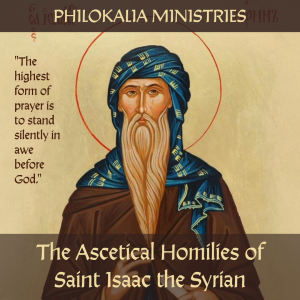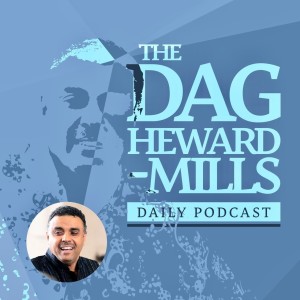

The Ascetical Homilies of St. Isaac the Syrian - Homily III, Part I
Upon reading the beginning of this homily, one clearly gets the sense that Saint Isaac the Syrian wants our understanding of the spiritual life, who we are as human beings, and a relationship with God (who has created us in His image and likeness), to be set on a foundation that is unshakable. One must love Isaac for the effort! He is giving us eyes to see.
He began by presenting us with an image of a soul who truly abides in her nature, and so comes to penetrate into and understand the wisdom of God. Knowing nothing of the impediment of the passions, the soul is lifted up toward God and is astonished and struck with wonder. This is Isaac’s starting point for a reason. He wants us to regain what over the course of time has been lost; that is, our perception the beauty and wonder of how God has created us and our natural capacity for love and virtue. Furthermore, it is not just about perception but the experience of being God bearers and temples of the Holy Spirit. It is about our deification.
What has distorted or understanding is the emergence of the passions and how we have come to view them. Isaac tells us categorically that the soul by nature is passionless. We are created in God‘s image and likeness and it is only the emergence of sin that has darken that which was created to be filled with light. Thus, when a soul is moved in a passionate way, she is outside her nature. The passions have the ability to move the soul after the fall. There’s a radical communion between body and soul and with sin our experience of the world through the senses and in our desires and appetites become distorted. The break of communion with God leads to an internal break within us as human beings; a fragmentation on the deepest level of our existence. What is the nature of a soul created for communion when it pursues autonomy from the one who created her in love? Is it not only the loss of unity with God but within ourselves and our capacity to experience and reflect our true dignity?
Saint Isaac makes us work in these paragraphs and grapple to understand what he’s saying. Yet, it is a labor of love; for it is upon the foundation of this understanding of our nature that we will once again be able to see the wonder and beauty of how God has created us and experience the healing necessary to reflect this wondrous reality to the world.
---
Text of chat during the group:
00:17:20 Bob Čihák, AZ: P. 127, paragraph 1
00:31:07 Lindsey Funair: When I hear the memories of the soul grow old, it reminds me that the soul knows not ego or attachment, it remembers only what is worthy of taking to Paradise, only that that is in Love. That is all there is once the world and self-love and other things that are not Love, is filtered from our memory.
00:31:13 Anthony: It's important to say that Isaac was born into a time and geography of turmoil and he wasn't living in comfort locked away from the outside.
00:31:43 Maureen Cunningham: Washington Carfer
00:31:52 Maureen Cunningham: Carver
00:33:02 Troyce Garrett Quimpo: This sections reminds me of St John of the Cross's Purgative Way.
00:36:11 Anthony: George Washington Carver
00:36:20 Vanessa: famous Black inventer
00:40:08 Maureen Cunningham: Yes George Washington Carver thank you , a little book I read . A Man who talked to flowers.
00:40:34 Anthony: I think when Isaac refers to philosophers he might have in mind the humors that dominate a man or the astrologers who Forcast about a person.
00:42:08 Lindsey Funair: it helps me to think of passions in this sense of Maslow's entire hierarchy, those things which are necessary to life and living and connecting with others and doing good, but when focused on directly become a distraction from the humility and obedience which place us "in" our soul and in relative connection to God
00:42:08 Manuel: How this idea that the soul is passionless by nature fit in with the opening of the Philokalia “There is among the passions an anger of the intellect, and this anger is in accordance with nature. Without anger a man cannot attain purity”?
00:44:25 Vanessa: When I went to university, I always thought the academics disciplines were centered around "explaining the world without God."
00:44:51 Anthony: I wrote it
00:44:56 Kathy Locher: What in our nature would have made us susceptible to temptation. Especially, given that we were living in Eden in God’s company?
00:45:31 Ryan N: Father what would your response be to those who emphasize the importance of the body because it is equally made in the image and likeness of God ( not just the soul)
00:46:35 Myles Davidson: Reacted to "What in our nature w..." with 👍
00:48:25 Lindsey Funair: It is a context for personhood
00:59:59 Lindsey Funair: the body feels first the pain then looks for purpose, where the soul honors the purpose by bearing the pain. vain suffering, suffering without purpose, is not of the soul and is rejected by it rightfully.
01:01:26 David: I notice more and more people respond - that is the way I am . Usually with a passion a mentor once responded but if you could see who you could become. It almost seems like many use that is the way I am as an excuse to embrace sin.
01:02:11 Catherine Opie: Reacted to "I notice more and mo..." with 👍🏻
01:04:30 Vanessa: Reacted to "I notice more and mo..." with 👍
01:04:58 Alex Underwood: It is my understanding that there’s no word for “consciousness” in the Old Testament.. is it right to say that The Christ, as this representation of the revealed consciousness of God, brings us into an understanding of the un-consciousness of The Father.. this “invisibility” that Isaac speaks of?
01:06:42 Una: What's the book again?
01:06:50 Myles Davidson: https://www.amazon.com.au/dp/B09M4CQL1H?ref_=mr_referred_us_au_nz
01:06:53 Lindsey Funair: What then is the meaning of writing a name on the heart?
01:07:11 Una: Thank you
01:07:15 Myles Davidson: Replying to "What's the book agai..."
Essential reading!
01:07:28 Una: Dr. Raymond Richmond in San Francisco gets close to this idea
01:07:41 Una: Chastity in San Francisco? is his site
01:08:04 David: A Beginner's Introduction to the Philokalia, 2016: Anthony M. Coniaris: 9781880971796: Amazon.com: Books
01:08:17 Catherine Opie: Reacted to "https://www.amazon.c..." with 🙏🏻
01:08:30 David: Only available through kindle
01:10:33 Myles Davidson: Reacted to "https://zoboko.com/b..." with 👍
01:13:47 Max Horcher: Reacted to "https://zoboko.com..." with 👍
01:14:53 Catherine Opie: Don't download that PDF version it seems to be a malicious site
01:14:58 Catherine Opie: Sorry
01:16:05 David: I found a good definition of Nous (eye of the soul) or heart.In this belief, soul is created in the image of God. Since God is Trinitarian, Mankind is Nous, Word and Spirit. The same is held true of the soul (or heart): it has nous, word and spirit. To understand this better first an understanding of St. Gregory Palamas's teaching that man is a representation of the trinitarian mystery should be addressed.
01:17:41 Wayne: Reacted to "I found a good defin..." with 👍
01:19:44 Max Horcher: Replying to "Don't download tha..."
I did, and it seems fine to me, but YMMV. I also have AdblockPlus and UBlockOrigin running; might be problematic without adblockers.
The EPUB to PDF converter site isn't English, but it worked as advertised.
01:20:38 Alex Underwood: Excellent insight, thank you father
01:21:13 Catherine Opie: I'm really finding this very transformational thank you Fr.
01:21:28 Sr Barbara Jean Mihalchick: The Deification of Man - a book by a Romanian Orthodox writer of the last century
01:22:28 Maureen Cunningham: Thank you Blessing to all and many prayer for Father
01:22:28 Andrew Adams: Thanks be to God! Thank you, Father!
01:22:29 David: Thank you very much Father. May God bless you and your mother
01:22:32 Rebecca Thérèse: Thank you🙂
01:22:34 Art: Thank you!!
01:22:45 Catherine Opie: Thanks be to God. No way!
01:22:45 Jeffrey Ott: Thank you! A presto!
01:22:45 Alex Underwood: lol
01:22:59 Lee Graham: Thank you, have a great week
01:23:01 Lindsey Funair: thank you, Father
More Episodes
All Episodes>>You may also like
Create Your Podcast In Minutes
- Full-featured podcast site
- Unlimited storage and bandwidth
- Comprehensive podcast stats
- Distribute to Apple Podcasts, Spotify, and more
- Make money with your podcast










